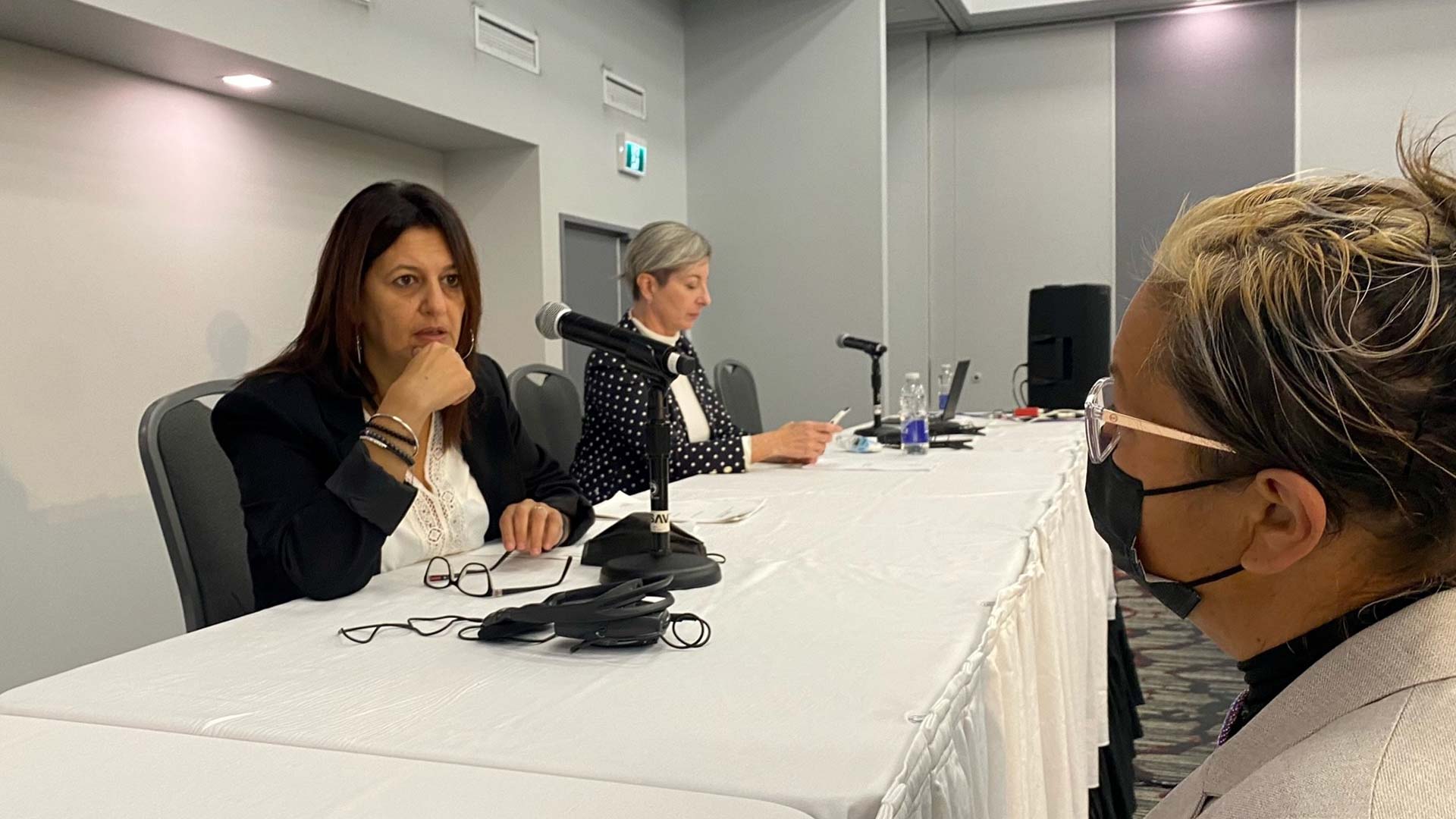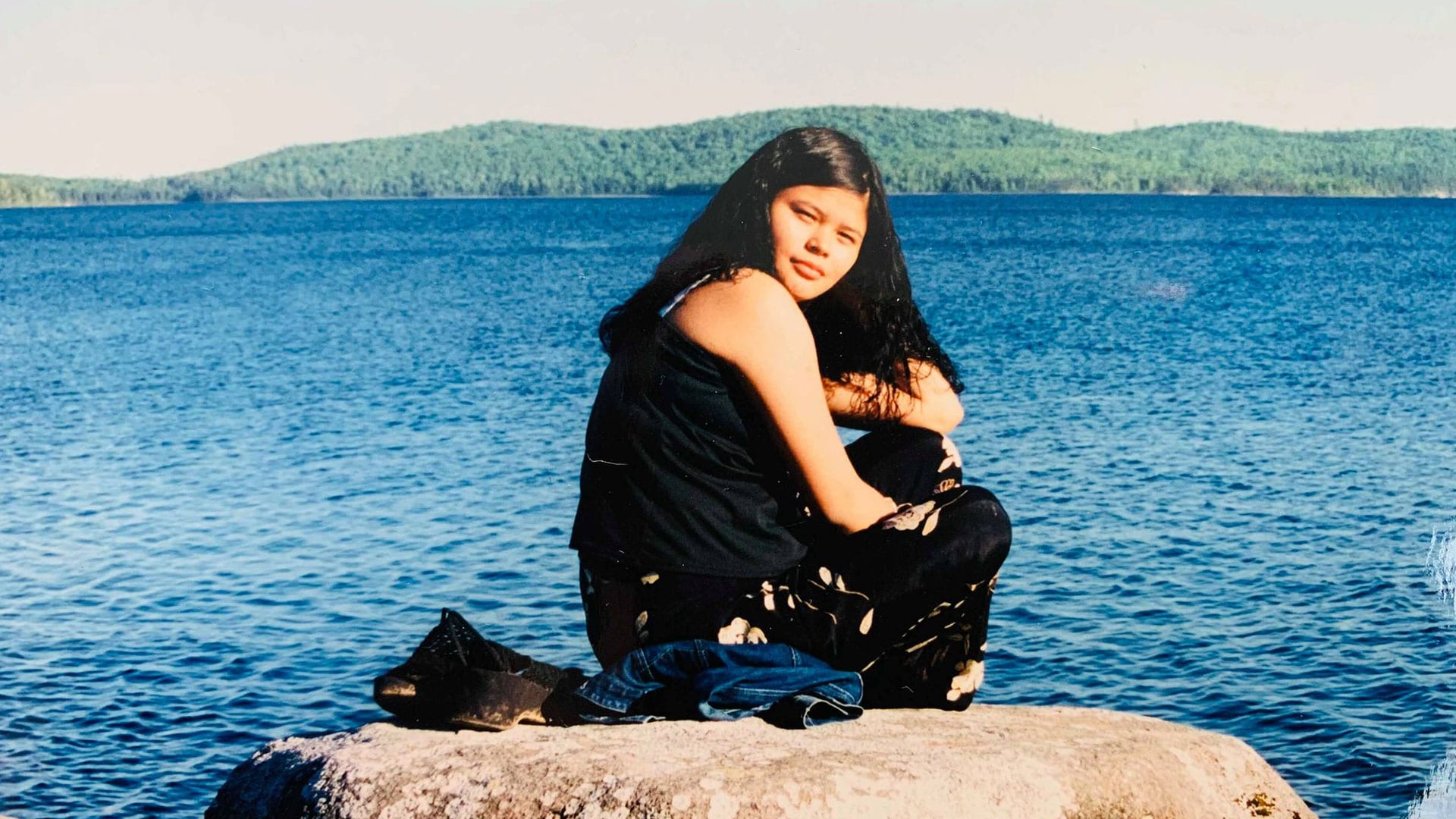The existence of systemic racism in the way Joyce Echaquan was treated in a Quebec hospital is undeniable, coroner Gehane Kamel said Tuesday, a few days after releasing her report on the Atikamekw mother’s controversial death.
Kamel oversaw the Echaquan inquiry which wrapped up Sept. 29 and found racism and prejudice from hospital staff contributed to the 37-year-old’s death.
Kamel recommended the government recognize the existence of systemic racism and make a commitment to root it out of institutions.
“We have witnessed an unacceptable death, and we must ensure that it is not in vain,” Kamel told reporters.
“It is unacceptable that large sections of our society deny such a well-documented reality.”
When asked if the mother of seven would still be alive if she were a white woman, Kamel replied: “I think so.”
But despite the coroner’s recommendation, the Legault government has steadfastly denied systemic racism exists in the province.
Echaquan filmed herself on Facebook Live as a nurse and orderly were heard making derogatory comments shortly before her death on Sept. 28, 2020, at a hospital in Joliette, Que., northeast of Montreal.
The video went viral and drew widespread outrage and condemnation.

The final report concluded her initial diagnosis was based on prejudice and she wasn’t properly monitored before finally being transferred to intensive care.
Echaquan died of pulmonary edema that was linked to a rare heart condition.
Kamel said she wouldn’t get involved in the political debate over systemic raism, but she said she concluded that Echaquan’s treatment was an undeniable example of its existence.
It’ll be up to elected officials to decide where to go next, she said.
Her hope, she added, is that her finding will invite discussion and reconciliation with Indigenous groups.
Echaquan family announces lawsuit against Quebec hospital in wake of coroner’s report
Echaquan’s family who live in Manawan, about 250 km north of Montreal, said Tuesday it would launch legal action against the hospital where she died.
Lawyer Patrick Martin-Menard was flanked by Echaquan’s husband, Carol Dube, as well as other members of the family as he announced the civil suit at a news conference after Kamel spoke.
Martin-Menard told reporters in Becancour, Que., that Echaquan was the victim of negligence “at several levels” and said her death was “triggered by a combination of deficient health-care and racist prejudices and misconceptions.” Details of the civil suit would be announced in the coming days, he added.
Dube, who was joined by one of his daughters, spoke quietly and kept his head bowed as he once again called for changes to a system that he said discriminated against Indigenous families and judged his wife for having had multiple children.
“Joyce is dead because she was Indigenous,” he said. “A woman with seven marvellous children _ what she had that was most beautiful was used against her in a system that still allows this kind of tragic situation to happen.”
While Kamel maintained that racism played a part in Echaquan’s death, Kamel noted that it wasn’t the only factor. She said emergency room overcrowding and a lack of trained staff on the floor meant there weren’t enough people to supervise
Martin-Menard said that in addition to the civil lawsuit, he would also be filing a complaint against Quebec’s order of nurses and the order of physicians, asking them to review the entirety of her care. He said he would also file a complaint with the province’s human rights commission.
Here is a look at some of Kamel’s recommendations:
For the Quebec government
Recognize the existence of systemic racism within our institutions and make a commitment to contribute to its elimination.
For the regional health authority that governs the hospital in Joliette, Que., where Echaquan died
Ensure the effective integration of the Atikamekw liaison officer into the hospital, in particular by involving them with care teams.
Ensure notes in medical files reflect the reality of how patients are being cared for.
Review the nurses-to-orderlies ratio based on standards recognized at the provincial level in order to provide safe services to the population.
Maintain periodic training on the establishment’s code of ethics, restraint measures, the monitoring of patients following a fall, and record management.
Quickly set up training and activities for the inclusion of Indigenous culture that is coordinated with the community of Manawan.
Improve the nurse/nursing assistant model and ensure that each has a clear understanding of their roles.
For the College des medecins du Quebec, the province’s order of physicians
Review the quality of the medical care given by the doctor responsible for family medicine and by the medical resident in gastroenterology to Ms. Echaquan during her hospitalization in September 2020.
For the Ordre des infirmieres et infirmiers du Quebec, the province’s nurses order
Examine the quality of care of nurses’ services provided to Ms. Echaquan during her hospitalization.
Review the integration practices of college-level nursing candidates in emergency departments across hospitals in the province.
For the Department of Higher Education and its institutions that train doctors, nurses and nursing assistants
Include in the school curriculum training on the care of Indigenous patients that takes into consideration the realities of Indigenous communities.
Establish with Indigenous communities a greater offer of internships for both nurses and medical residents.
Quebec premier says last week’s debates on racism lacked compassion for First Nations

While not admitting systemic racism exists in Quebec, Premier Francois Legault is accepting responsibility for the lack of compassion and solidarity toward Indigenous Peoples last week involving himself and the opposition.
Legault said Monday on Facebook that last week’s debates on racism did not strike the right tone, because they occurred on the first anniversary of the death of Joyce Echaquan and later, on the National Day for Truth and Reconciliation.
Legault’s message was to mark Missing and Murdered Indigenous Women and Girls Honouring and Awareness Day, and he said the situation required putting partisanship aside and shining a light on what Indigenous Peoples are going through.
Legault said the province is committed to fighting racism and rallying Quebecers together in that fight.
“I am well aware that the National Assembly last week did not send the message of compassion and solidarity that the situation demanded of us, I include myself in this and take responsibility for it,” Legault wrote on Facebook. “As premier, I have a duty to lead by example, I sincerely try to do this every time I speak to Quebecers.”
Legault said he is convinced the vast majority of Quebecers are ready to fight racism.
“We must make it a collective mission so that everyone stands up to discrimination when it occurs.”
Quebec opposition leaders, however, are wary of Legault’s promises.
“I’ll say that I have hope – but I’m not holding my breath either,” Liberal critic Greg Kelley explained during Tuesday’s inquest update.
“What worries me for the family of Joyce Echaquan and for Indigenous people across this province – [the coroner’s] concerns that maybe the government won’t act on these recommendations,” Kelley added.
“So that’s where oppositions have a role to play – to push the government and say ‘where are we on all these recommendations? What actions have you taken?’ We’ll be continuing that fight in the National Assembly.”
Quebec Solidaire critic Manon Masse, like Kelley, is ready to keep the pressure on.
“It’s not through punishing people one and at time, every time [that we can make change] – it’s systemic. We need to act in a global way, and Quebec Solidaire endorses this fully.”
In a press melee held Tuesday – at the same time as the Echaquan family’s press conference – Legault doubled down on his denial of Quebec’s systemic issues.
“Yes, there is some racism in Quebec – but less than many other places,” Legault told reporters.
“The only place where I don’t agree is when we say that there’s a ‘system.’ Because for me, a system is coming from upstairs, coming from the top people – and I don’t see this in the health care system.”
In response, the Assembly of First Nations Quebec-Labrador criticized Legault’s “misguided stubbornness.”
“The Premier and Deputy Premier constantly talk about building ‘bridges’ with First Nations. After three years of the [CAQ] government, it is high time they got down to it,” AFNQL Regional Chief Ghislain Picard said in a written statement.
“First Nations have been waiting at the river for a long time. We must ensure that no one loses their life at the hands of the system,” he added.
Constant Awashish, Grand Chief of the Conseil de la Nation Atikamekw (CNA) said ______
“[Systemic racism] is well-documented. We have a lot of work to do, and I think it starts with the Premier here in Quebec,” Awashish said. “I think he’s only seeing the result of it. I think he doesn’t understand the cause of all those [incidents] that are happening.”
“They’re looking at it as a headache,” he added. “But in reality, it’s a migraine.”










